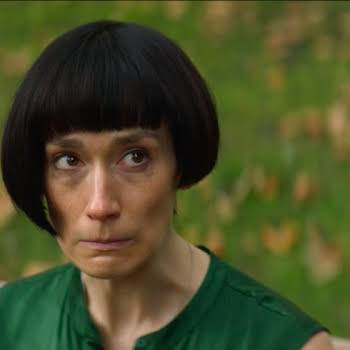
By Jennifer McShane
16th Apr 2016
16th Apr 2016
We’ve long reported on tearful stories of couples that pass away within hours of one another. The tender tales make us well up; devoted couples together in death as they were in life because one simply could not bear to be without the other (we need tissues). One of the most famous examples of this is that of Johnny and June Cash, who died within just four months of each other, but some couples have died within hours of their partner.
A timeless expression suggests that you can, in fact, die from a broken heart, but a team of researchers has set to prove that this legitimately happens. Scientists believe the grief of losing a partner can have an intense effect on a person’s health, thus resulting in their untimely passing.
It’s known as the widowhood effect, considered by social scientists to be ?one of the best-documented examples of the effect of social relations on health,? as Nicholas A. Christakis of Harvard and Felix Elwert of the University of Wisconsin?Madison wrote in what is perhaps the most well-known?existing study on the subject. Previously, research suggested that within the three months after one spouse dies, the chance that the other will follow is anywhere from 30% to 90%.
However, in a new study, Danish researchers have linked experiencing the loss of a partner to a higher risk of developing an irregular heartbeat – something that can lead to stroke or even heart failure. And the risk was greater in those whose loved ones died unexpectedly.
According to The Guardian, the team, led by Dr Simon Graff, set out to ?examine the risk of atrial fibrillation [irregular heartbeat] after the death of a partner? and found that such a stressful experience increased the risk for a year afterwards.
Assessing a huge portion of data from the Danish population between 1995 and 2014, the team collected information on 88,612 people newly diagnosed with atrial fibrillation and 886,120 healthy people, matched for age and sex. Over 17,000 of those with the heart problem had lost their partner, as had 168,940 of the comparison group.
The risk of developing an irregular heartbeat for the first time was 41% higher with those who had suffered a bereavement than those who hadn’t, irrespective of underlying health conditions.
The highest risk, according to researchers, was among people under the age of 60, described as ‘more than twice as likely to develop atrial fibrillation if they had been bereaved?.
Of course, the question here is why this happens. Some have argued that it’s the intense physical effect the grief has on their bodies, but others insist there is a legitimate scientific explanation.
“The number one cause of death of a bereaved spouse is heart disease and sudden death, meaning the heart stops,? reported NBCNews, quoting internist Dr. Lee Lipsenthal. It’s been called, ?broken heart syndrome,? the colloquial term for takotsubo cardiomyopathy. ?The condition nearly always follows a traumatic emotional loss, such as the death of a spouse, parent or child and it primarily affects women. ?
?Now we know that it’s the heart and the brain together that cause people to die of a broken heart after a sudden stressful event,? senior lecturer in nursing at the University of South Australia, Angela Kucia added.
?We do know that the biggest player in this condition developing is what we call adrenaline-like hormones that we get in response to stress,? she explained. ?It causes chest pain, and sudden heart failure believed to be brought on by a surge of fight or flight hormones.? Of course, this makes sense as the loss of a partner is considered one of the most stressful life events.
It can lead to mental illness symptoms such as depression, and can cause people to lose sleep and appetite, drink too much and stop exercising – all known health risks.
To think that a person couldn’t exist without their spouse after a lifetime of togetherness is heart-wrenchingly sad, and science setting about to prove this doesn’t make it any less so.
Via?The Guardian






















